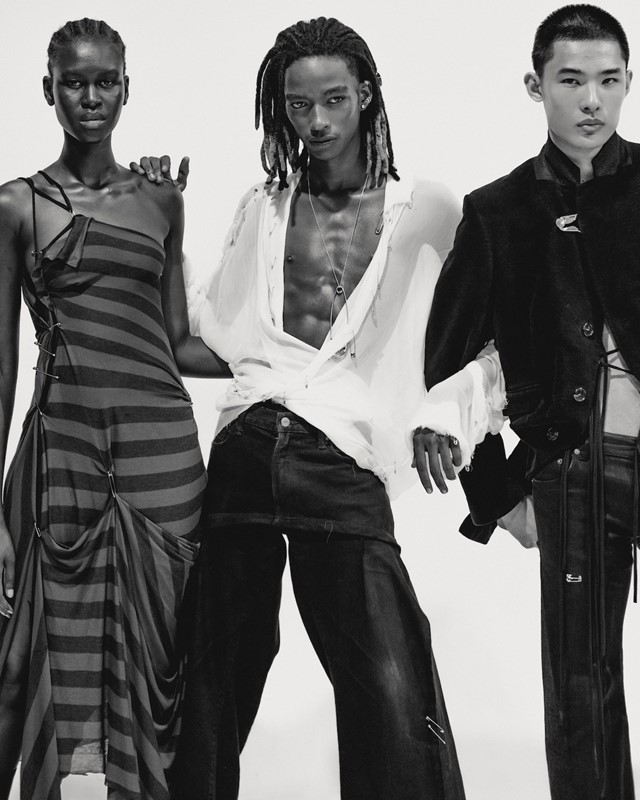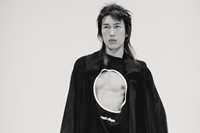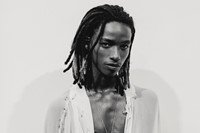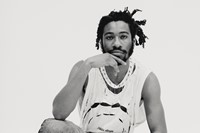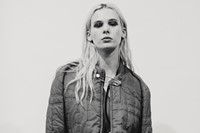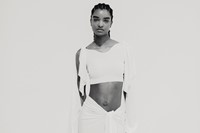As Jawara Alleyne enjoys his London catwalk debut as part of Fashion East, the designer talks about making clothes function on the body and “letting go” post-lockdown
After graduating from Central Saint Martins’ MA Fashion (menswear) course in 2020, designer Jawara Alleyne has since expanded his repertoire – informed by his experience as a queer, Black man who grew up between Jamaica and the Cayman Islands – into womenswear, too.
Yet, after a pair of collections debuted as part of Fashion East – Autumn/Winter 2021, digitally, and last season’s presentation of a mix of precariously posed models and mannequins – the designer’s clothes are finally where they belong: on the catwalk.
A concise, ten-look collection, each piece was brought to life with the swagger and sway of the sauntering models’ hips. For Autumn/Winter 2022, Alleyne honed his signature drapery, either punked up – safety-pinned within an inch of its life, not for the faint-hearted – or more sophisticated, like the white, Grecian gown that closed the collection. The designer’s menswear offerings felt more relaxed, but were also livened with kinetic energy: from billowing trousers split up the sides to the flashes of skin that peeked out under a curved hem jacket, or through ab-exposing cutouts.
Here, in the lead-up the show, the designer Jawara Alleyne reflects on his Autumn/Winter 2022 runway debut in his own words:
“With this collection, I found that there’s a lot I managed to figure out, particularly between the first two collections and this one. When I’m designing, I’m really just designing for my own research and development of clothes and then building a business on top of that.
“I wanted to make sure that this collection was focussed on the processes and theories that underpin the work I do. There’s a lot of storytelling in my work, but there’s also a strong knowledge of the ways of cutting patterns – particularly for the male form. I underpin that with my identity, looking at what that means, how it’s developed or impacted the relationship that I have with clothes and how it has defined the relationship that I have with designing clothes.
“I knew I wanted to present an awesome Autumn/Winter collection that is still true to my Caribbean perspective. It feels as comfortable, easy, and sexy as you would present a Spring/Summer collection. That’s the thread I find needs to be present in both collections, which is the idea of ease – something that is easy to slip into, but you feel sexy in it and want to wear it out. Lockdown has really proven that comfort is key.
“I design everything on my own body, so from that perspective, I can put them on and see how they actually function on the body. I think that is quite key to finding the reality of the clothes because I’m making them on myself.
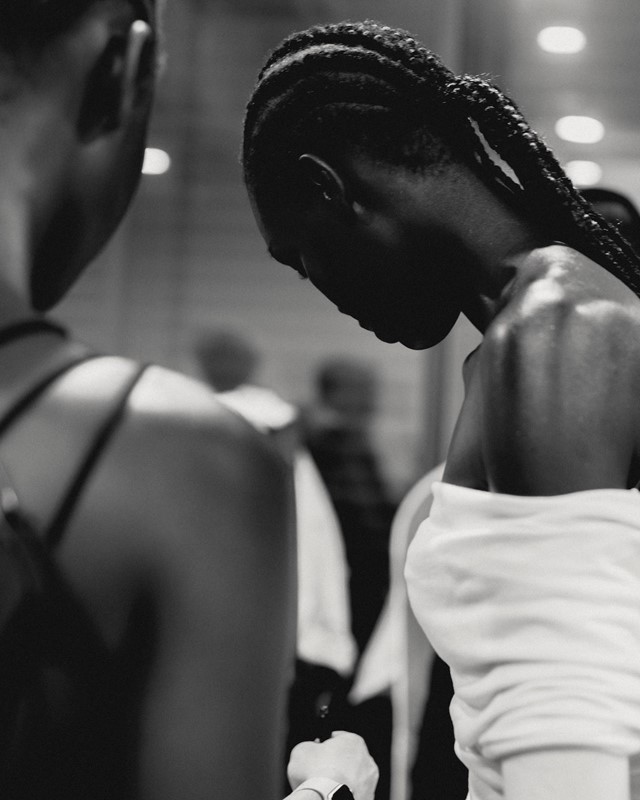
“Looking at draping and cutting patterns that really move around the body, so that they feel easy and comfortable in real life. You want to see my garments in movement and they work well when you’re seeing it in movement. The garments naturally do well on the runway because it is stripped back to see the processes: the way the trousers fit, or the way the jacket or shirt sits, the way dresses swing and hang off the body. Each of the garments are created to compliment, move against, and sit with the body.
“For me, this season in particular was about me clarifying my way of communicating about the collection. It’s one thing to have an idea, but to also be able to present it and make sure you’re speaking to people with the language they understand is also very important – especially when you’re moving from just being a designer to somebody building a business.
“I can’t speak for any other designers, but for me, coming out of lockdown the mood has been to let go. It’s been really hard being a designer these past few years, but now things are opening up again, we can’t wait around. We have places to go and we need to get there.“
